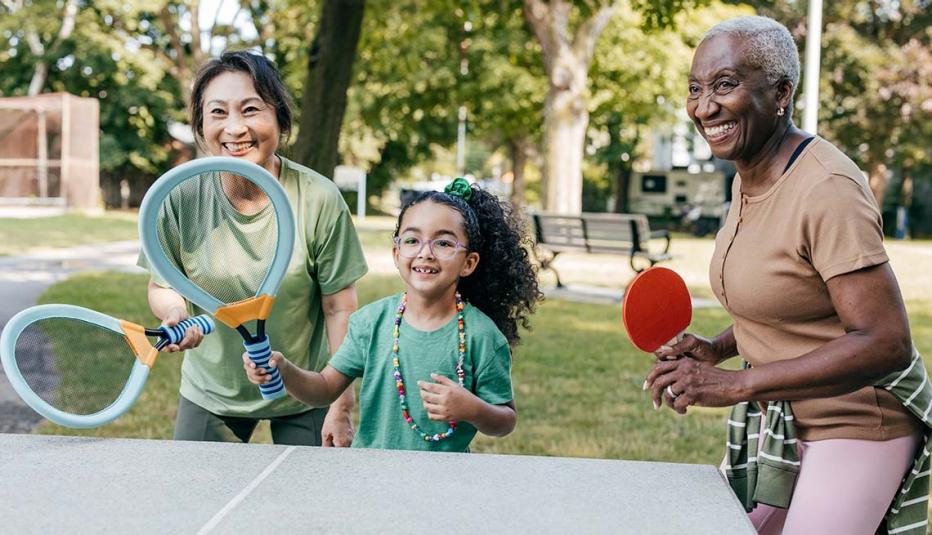AARP Hearing Center
While adults generally are aware of nutrition’s role in preventing diabetes, improving cardiovascular health, and even supporting energy levels, most are not making the connection to the food they consume and their brain health, according to a recent AARP study.


Additionally, many struggle to maintain a nutritious diet despite knowing they should do so for their overall health. Nearly half (48%) of adults age 40 and older rate their knowledge of healthy eating as high, but only 18% find it easy to maintain a healthy diet. A quarter (25%) find it difficult to maintain a healthy diet.
The findings are part of AARP’s 2025 Healthy Living Theme Month study looking at the relationship between healthy eating and brain health among midlife and older adults. The results reveal a disconnect between views on healthy eating and actual behavior. The reasons for the disconnect between wanting to eat healthy and actually doing so is multifaceted, and one that AARP is already addressing through its leadership with the Global Council on Brain Health.
Nutrition as brain fuel
Adults do seem to be increasingly aware they can take steps to support their brain health. Yet when asked about ways to maintain brain health, eating the right foods does not even make the top three that people name. Factors they rank higher in importance include engaging the brain, sleep, and stress management. Just 10% ranked a healthy diet as the most important factor in maintaining brain health. Only exercise and maintaining social connections received less support.
Eating a balanced, whole-food diet rich in essential nutrients that emphasizes fruits, vegetables, and lean proteins, while limiting processed foods, added sugars, and unhealthy fats, can improve cognitive performance, protect against cognitive decline, and potentially lower the risk of mental health issues. Many people also report such healthy habits as drinking lots of water (71%), eating lean sources of protein (65%), and consuming nutritious snacks like fruits and vegetables (64%).
Despite the lack of awareness of heathy food’s importance to brain health, there is openness to the topic. While few believe healthy eating is the most important action they can take, when asked, nearly half of adults age 40-plus say they intend to make healthy eating a regular habit to improve brain health and are confident they can succeed.
A disconnect in action
Many adults do believe in the benefits of healthy eating, as 70% believe adopting healthy eating habits can lead to significant improvements, regardless of age. Nevertheless, that understanding does not always translate into regularly eating nutritious meals.
Just 29% of adults 40-plus believe they are doing well in consistently maintaining a healthy diet. Notably, adults ages 65-plus are most likely to say they follow a nutritious diet, compared to those ages 40-49 (36% vs. 20%).
Barriers such as cost and food preparation skills are among the reasons people cite for not eating healthy meals. One in five (21%) say they need reliable hints and tools to learn how to consistently eat a healthy diet, while two in five believe it is costly to eat healthy and one in six report they are unable to afford healthier foods.
A role for technology
More than half expressed interest in websites and apps that could help provide education on healthy eating or personalize goals. Technologies such as those that provide recipe information (30%), meal planning (28%), and nutrition education (25%) were among the most popular.
Despite the interest in technology, however, there is a limit to how much people want to interact with it for purposes of nutrition. Few expressed interest in technologies such as AI-generated nutrition guidance or smart kitchen appliances. Additionally, food-tracking apps and social media platforms were not popular options.
Methodology
The 14-minute online survey of 1,541 adults age 40-plus was conducted May 8, 2025–May 22, 2025 via the NORC Foresight 50+ Panel. Data were weighted based on the CPS and the U.S. Census Bureau’s American Community Survey.
For more information, please contact Cheryl Lampkin at clampkin@aarp.org. For media inquiries, contact External Relations at media@aarp.org.





































































